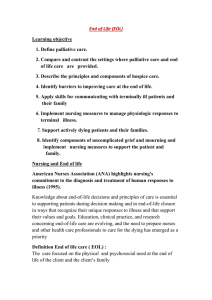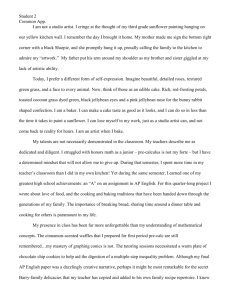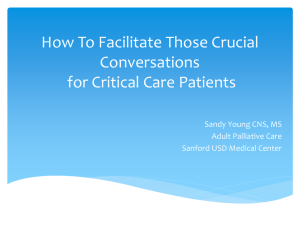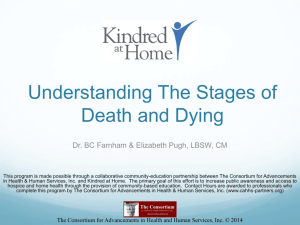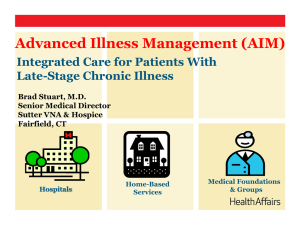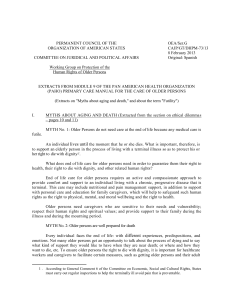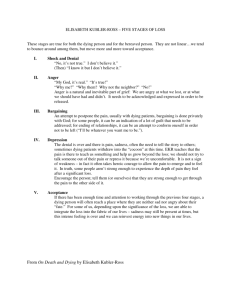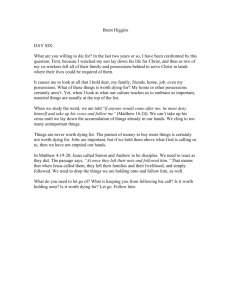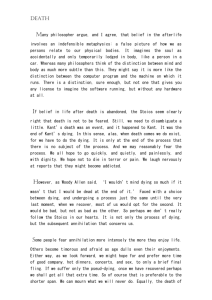Coping With Change - Transitions from Independence to
advertisement
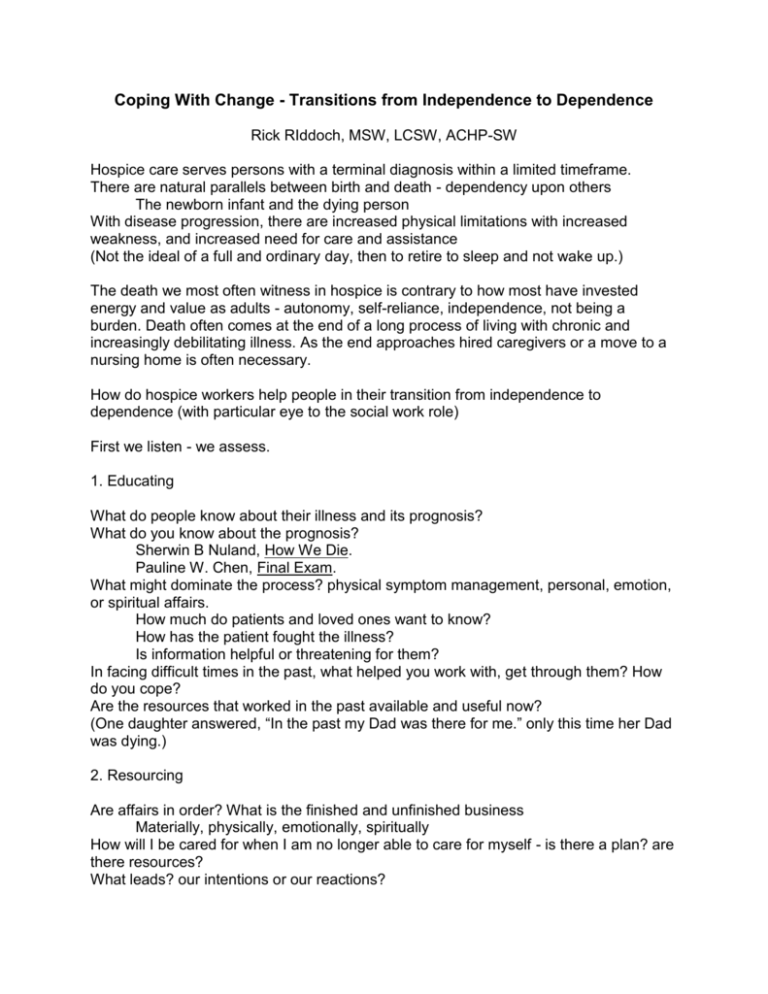
Coping With Change - Transitions from Independence to Dependence Rick RIddoch, MSW, LCSW, ACHP-SW Hospice care serves persons with a terminal diagnosis within a limited timeframe. There are natural parallels between birth and death - dependency upon others The newborn infant and the dying person With disease progression, there are increased physical limitations with increased weakness, and increased need for care and assistance (Not the ideal of a full and ordinary day, then to retire to sleep and not wake up.) The death we most often witness in hospice is contrary to how most have invested energy and value as adults - autonomy, self-reliance, independence, not being a burden. Death often comes at the end of a long process of living with chronic and increasingly debilitating illness. As the end approaches hired caregivers or a move to a nursing home is often necessary. How do hospice workers help people in their transition from independence to dependence (with particular eye to the social work role) First we listen - we assess. 1. Educating What do people know about their illness and its prognosis? What do you know about the prognosis? Sherwin B Nuland, How We Die. Pauline W. Chen, Final Exam. What might dominate the process? physical symptom management, personal, emotion, or spiritual affairs. How much do patients and loved ones want to know? How has the patient fought the illness? Is information helpful or threatening for them? In facing difficult times in the past, what helped you work with, get through them? How do you cope? Are the resources that worked in the past available and useful now? (One daughter answered, “In the past my Dad was there for me.” only this time her Dad was dying.) 2. Resourcing Are affairs in order? What is the finished and unfinished business Materially, physically, emotionally, spiritually How will I be cared for when I am no longer able to care for myself - is there a plan? are there resources? What leads? our intentions or our reactions? 3. Counseling What is being lost - let go of? What are the issues, needs, challenges, and what are the meaningful questions? Have I made a difference? What is my legacy? Have I spoken when and where needed the 5 phrases: “I love you. Forgive me. I forgive you. Thank you. Goodbye.” Ira Byock, The Four Things That Matter Most. “We don’t let go of anything important until we have exhausted all the possible ways that we might keep holding on to it.” William Bridges 4. Meaning Making Telling illness stories. Arthur W. Frank The Wounded Storyteller. The Restitution Narrative The Chaos Narrative The Quest Narrative Can dying transition be a rite of passage? Leaving/letting go, the threshold or neutral zone, the new beginning (How is death a new beginning?) William Bridges, The Way of Transition. Other Models: Scott Eberle, The Final Crossing. Michael Kearney, A Place of Healing. Kathleen Dowling Singh, The Grace in Dying. 5. Reality Testing The complex physical and cognitive limitations at end of life may compromise or eliminate the possibility for communication, for story telling and story creating. Thus the importance of not delaying the conversations that matter. Other resources/stories: Mitch Albom, Tuesdays with Morrie. Philip Simmons, Learning to Fall. M. Callanan & P. Kelley, FInal Gifts. David J. Casarett, Last Acts. D. Barnard, A. Towers, P. Boston, & Y. Lambrinidou, Crossing Over.

